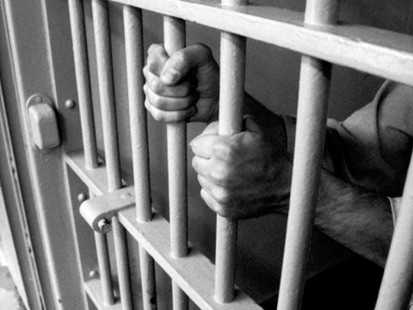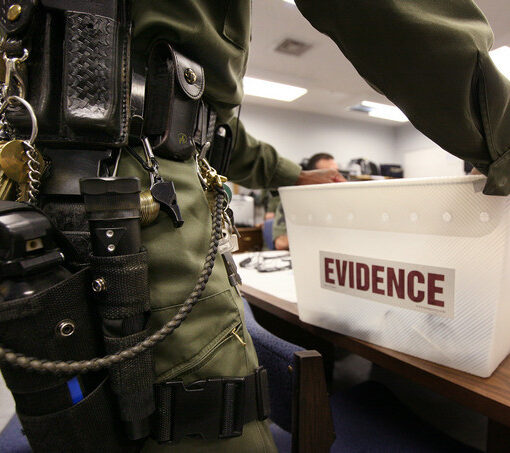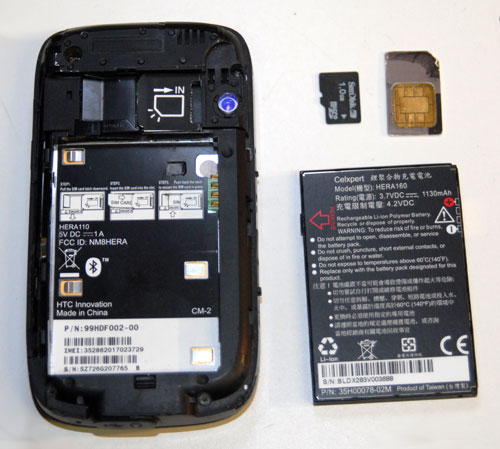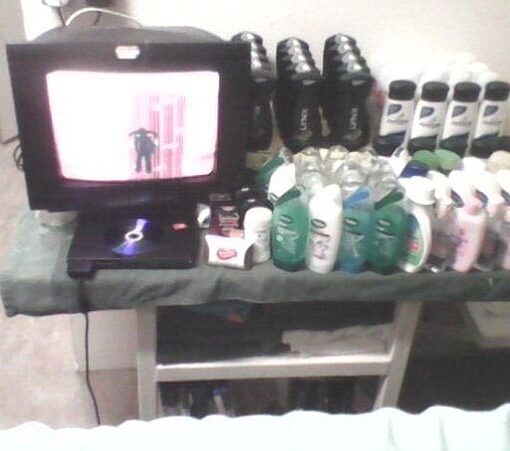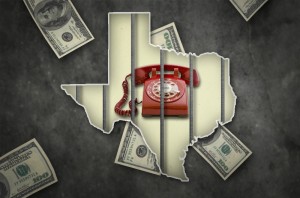 This article discusses the TDCJ’s decision to investigate the viability of managed access contraband cell phone jamming. California, Mississippi and Maryland are also testing the technology. The impact of smuggled contraband cell phones in prisons has been significant. As the article states, “A couple of years ago, there were long lines at the pay phones—hours long. By this year, no one was using them, there were so many smuggled cell phones.”
This article discusses the TDCJ’s decision to investigate the viability of managed access contraband cell phone jamming. California, Mississippi and Maryland are also testing the technology. The impact of smuggled contraband cell phones in prisons has been significant. As the article states, “A couple of years ago, there were long lines at the pay phones—hours long. By this year, no one was using them, there were so many smuggled cell phones.”
Update (3/15/13): Final testing starts next week at the first of two Texas Department of Criminal Justice prisons where equipment has been installed to block calls to and from unauthorized phones.
The equipment, known as a managed access system, also diverts text messages, emails and Internet log-in attempts from contraband phones. It should be in full operation at the Stiles Unit outside Beaumont and the McConnell Unit near Beeville next month. The two prisons together hold some 5,000 inmates and historically have been the worst of the more than 100 Texas prisons when it comes to cellphone smuggling.
The managed access systems that are being installed won’t interfere with 911 calls, but they will only other calls and communication only to and from registered devices. The top managers at the prisons will decide which ones can be registered.
“It behaves as a cellular tower,” said Mike Bell, the prison system’s information technology director. “Based on ID numbers, if you’re on authorized list, it allows the call to go through.”
Update (9/7/12): Brad Livingston, executive director of the Texas Department of Criminal Justice, told the Senate Criminal Justice Committee at a Capitol hearing 0n 9/4/12 that a “managed-access system” is to be installed by the end of the year at the Stiles Unit in Beaumont and the McConnell Unit in Beeville.
Livingston said the new system will not jam cellphone calls in and around prisons, but will instead intercept all outgoing calls. Only those to numbers that have been pre-approved will be allowed to go through, and the rest “will go to a dead end,” he said.
Livingston said the new managed-access technology is being paid for by Century Link, a private firm that operates pay phones inside Texas’ 111 state prisons. Officials earlier said the system’s cost was about $1 million per prison.
“These two prisons have had the most significant ongoing problems with (smuggled) cellphones, and that’s why they were selected,” Livingston said. “There are no plans at this time to go beyond these two units.”
California and Texas may be considered opposites on the political spectrum, but the two states do have the same philosophy when it comes to cell phones in state prisons.
California got the ball rolling when Global Tel Link agreed to pay millions to install technology in state prisons to block web searches, text messages and phone calls by inmates using smuggled phones.
Texas also saw a problem with its inmates smuggling phones into prison and has recently confirmed working with CenturyLink, a private company that operates pay phones inside Texas’ 111 state prisons, to evaluate installing a similar system in Texas.
“The system would be a managed-access system and does not jam cell phones,” said Jason Clark, spokesman for the Texas Department of Criminal Justice.
“Managed access intercepts the outgoing calls and only allows calls from approved numbers. This is legal,” Clark said, noting that the Federal Communications Commission prohibits jamming.
Inmates’ access to cell phones in prison can have extreme consequences. Some inmates have used cell phones to run criminal enterprises from behind bars and organize assaults on guards and intimidate witnesses, California prison officials said.
“This groundbreaking and momentous technology will enable [the prison system] to crack down on the potentially dangerous communications by inmates,” said Department of Corrections and Rehabilitation Secretary Matt Cate.
In 2011, California prison guards confiscated more than 15,000 contraband phones. In the same year, Texas prison officials seized 904 cell phones.
The first prison in California is expected to receive Global Tel*Link’s technology by October 2012, according to Dana Simas, information officer for the California Department of Corrections and Rehabilitation.
When the system is installed, each prison will get its own cell tower that will allow prison officials to control all incoming and outgoing calls. All other calls will not go through within the confines of the prison.
“After this system goes in, smuggled cell phones will be nothing more than glorified paperweights,” said Simas. “A couple of years ago, there were long lines at the pay phones —hours long. By this year, no one was using them, there were so many smuggled cell phones.”
- Blockchain System for Compliant Inmate Transactions - March 4, 2025
- Securus Gets the Signal, Eleven Years Later - August 23, 2024
- Multi-Blockchain System for Inmate Forensics - April 2, 2024

